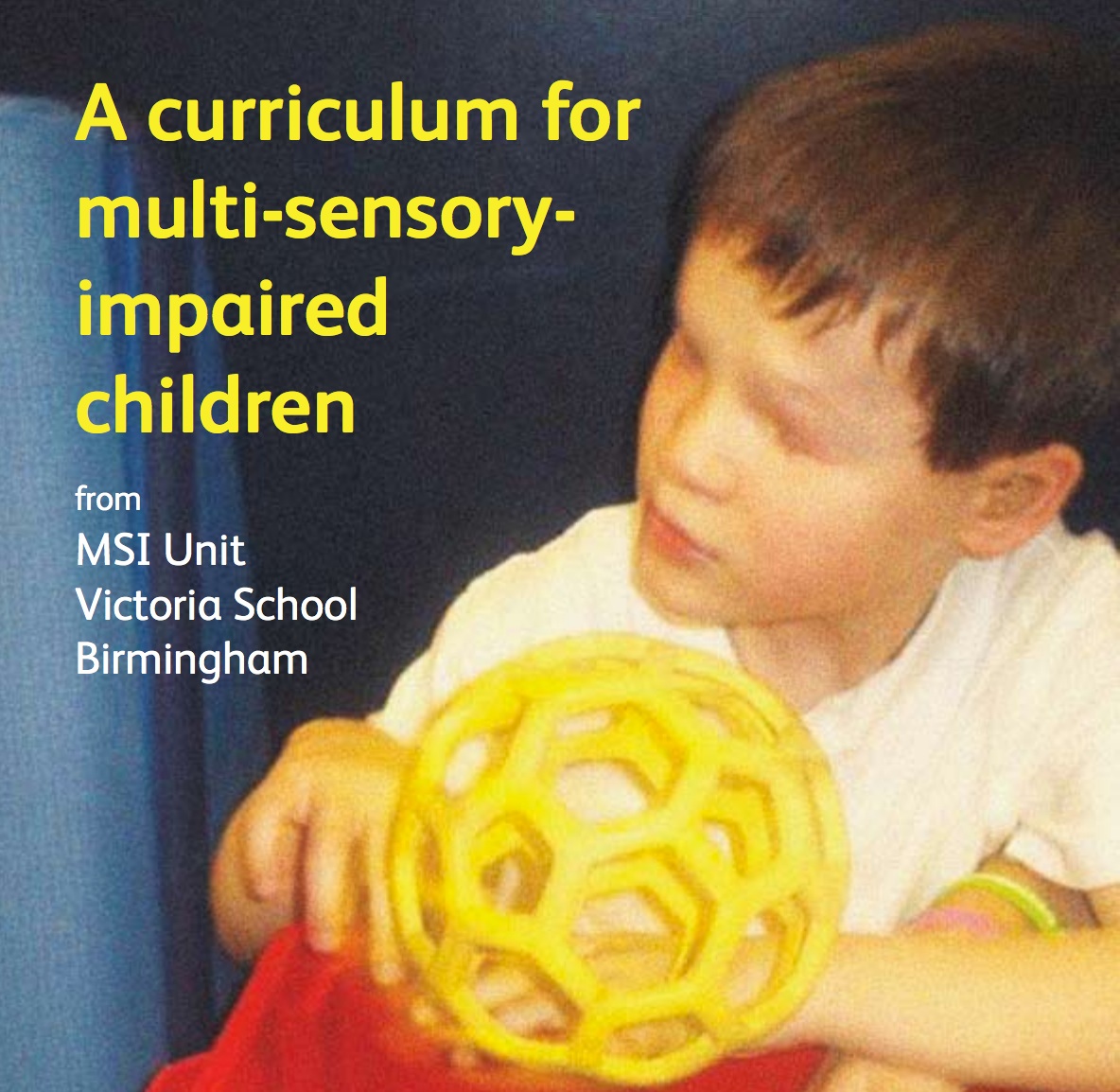A Curriculum for Multi-Sensory-Impaired Children
Submitted by Charlotte Cushman on Mar 03, 2017

A curriculum for multi-sensory-impaired children addresses the educational needs of learners with multi-sensory impairments and multiple disabilities. Available as a free download, this 152-page-document was written by Heather Murdoch, who is the Coordinator of the MSI (Multi-Sensory-Impaired) Unit in Victoria School, Birmingham, England. It was published by Sense in 2009.
Pupils attending the Unit have multi-sensory impairment (MSI) – combined hearing and visual impairments (deafblindess), often with additional physical, sensory, medical and/or learning difficulties. These students "very often lack the familiarity with everyday concepts which most curricular models assume will be established by the time they start school, and also lack the learning skills and structures needed to benefit from experiences. The MSI Unit Curriculum is designed to address these issues."
Curriculum content
The MSI Unit Curriculum is divided into eight domains, each addressing a specific aspect of learning. The domains are:
- social relationships and emotional development
- communication
- conceptual development
- sensory responses
- understanding of time and place
- orientation, movement and mobility
- ownership of learning
- responses to routines and changes
Case Studies
Four case studies are included with the Curriculum to show how it works in practice. Each of the four students has an individual timetable, with activities chosen to meet specific learning needs.
Progression
The Curriculum is divided into four phases:
- Pre-intentional
- Intentional non-symbolic
- Early symbolic
- Formal
Assessment
The Curriculum includes an assessment checklist, called a Phase Profile. Three levels of mastery can be recorded here:
-
aware – the pupil shows signs of being ready to learn the ability
-
achieved in specific contexts – the pupil consistently uses the ability in some, but not all, relevant situations
-
generalized – the pupil consistently uses the ability in all appropriate situations
Available as free download from:

Comments
Free download
link not working for download
Link fixed